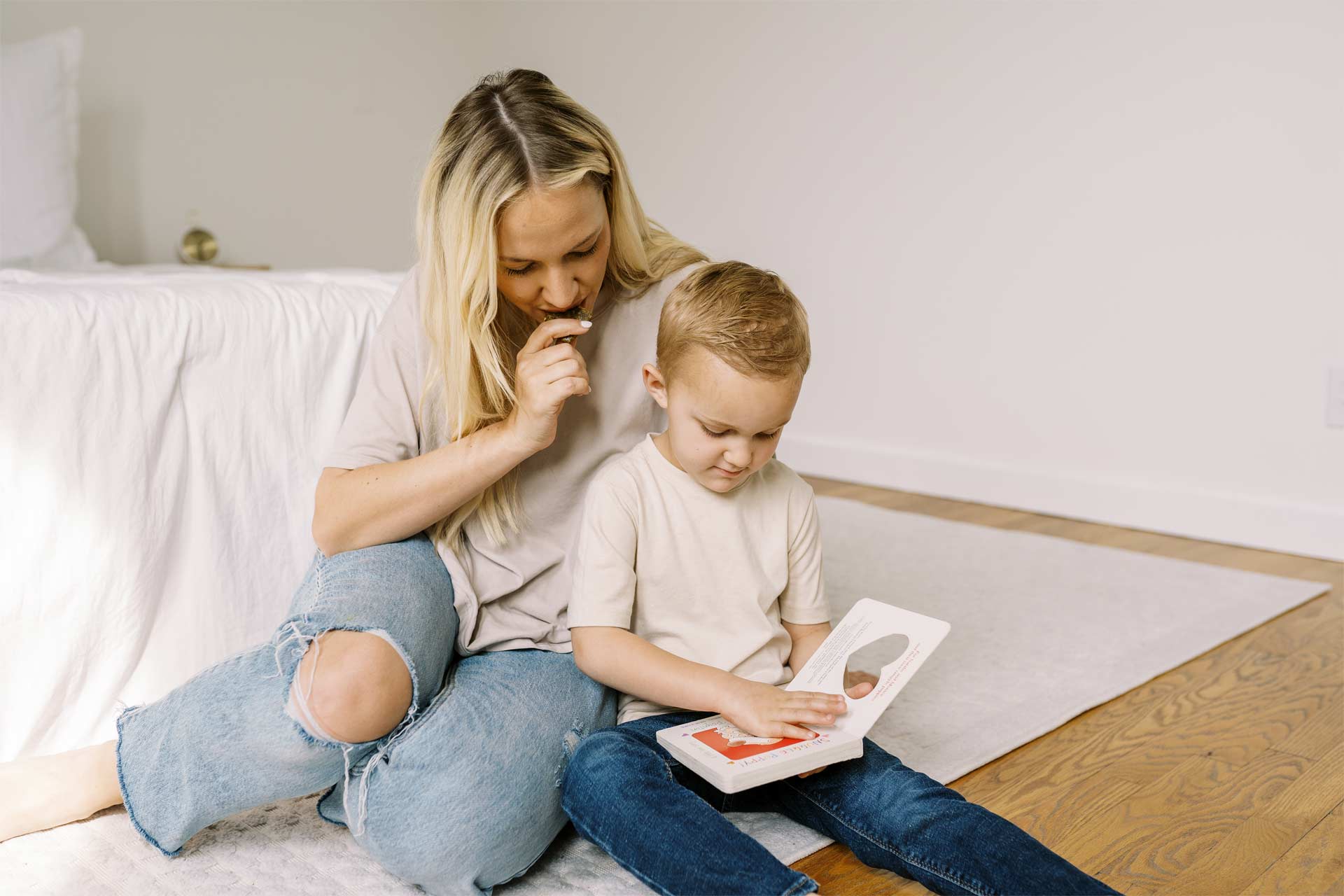

Postpartum Anxiety: Causes, Symptoms, and Coping
You've just brought a new baby into the world, and with them, a lot of new emotions. Many new moms feel an unimaginable amount of love and joy, but some women can get the "baby blues" post-birth and may be diagnosed with postpartum depression (PPD), getting in the way of those feelings of joy. Here we're going to explore the counterpart of PPD that's not discussed as often, postpartum anxiety (PPA).
A certain amount of anxiety is normal after having a baby, you have a huge responsibility! But for some new mothers, the anxiety can be overwhelming and have a significant impact on their wellbeing. Maternal mental health can often be overlooked when there's a tiny baby to worry about, but making sure mom is cared for too is important for the whole family's wellbeing.
What Causes Postpartum Anxiety?
There isn't one official cause of postpartum anxiety, but it could stem from a few factors:1
- People that already experience anxiety and have a family history of PPA may be more at risk
- Changes in hormones can have a direct effect on your brain and emotional state
- Lack of sleep
- Stressors such as experiencing a difficult pregnancy, traumatic birth, or breastfeeding issues
There are other risk factors for PPA based on social support and trauma:2
- Lack of support from partner
- Lack of support from friends or family
- Experience with unwanted pregnancy or abortion
Postpartum Anxiety Symptoms
When you have anxiety, your brain and body are responding to a perceived threat. It can make you feel constantly on edge and act in ways that aren't always rational. PPA is often exhibited in physical, emotional, and behavioral ways:1
Physical PPA Symptoms:
- Difficulty sleeping
- Racing heart/heart palpitations
- Shortness of breath
- Nausea
- Loss of appetite
- Muscle aches and pains
- Restlessness
Emotional PPA Symptoms:
- Inability to relax or calm down
- Racing thoughts
- Obsessing over fears or worst-case scenarios
- Fear of being left alone with baby
- Guilt
- Irritability and irrationality
Behavioral PPA Symptoms:
- Avoiding activities or people
- Being overly cautious/protective
- A need to be in control
How is Postpartum Anxiety Different from Postpartum Depression?
There's a lot of overlap between postpartum depression and postpartum anxiety. Many people that experience one also exhibit symptoms of the other. But the difference is, depression is associated with sadness and withdrawal, and anxiety is associated with intense worry, fear, and uneasiness. With postpartum depression, a mother might experience spontaneous crying, a feeling of hopelessness or worthlessness, feeling uninterested or unable to care for their baby or themselves, extreme fatigue, and/or feeling unable to experience happiness. It is more common that women with PPD also experience anxiety, but if you're anxious you aren't necessarily depressed.1
Treatment Options
There are some helpful ways you can relieve PPA like exercise, practicing meditation, and asking for support from loved ones. But sometimes the symptoms are too much to manage without additional help. If you're struggling, it's important to reach out to your healthcare provider to discuss other options in managing anxiety. They may suggest trying talk therapy, or they may prescribe medication – usually a common anti-depression and anxiety SSRI (selective serotonin reuptake inhibitors). If you're worried about taking medication while breastfeeding, you can discuss potential side effects and what will be safe for your baby with your doctor.
We already know having a new baby is hard. It's easy to over worry and get hung up on everything that could go wrong. Feeling this way is normal, and very common among mothers. In fact, one study showed that 1 in 5 new mothers experience postpartum anxiety, which is A LOT of people!3 If you are or have struggled with feelings of anxiety post-birth it can feel like you're on an island. But you're not alone, and there's no shame in asking for help.
DISCLAIMER: THIS CONTENT DOES NOT PROVIDE MEDICAL ADVICE
The information contained is for informational purposes only and is NOT intended to be a substitute for professional medical advice, diagnosis, or treatment. You should not rely solely on this information. Always seek the advice of your healthcare provider.
Sources
- "Postpartum Anxiety." Cleveland Clinic. Last reviewed 12 April 2022. https://my.clevelandclinic.org/health/diseases/22693-postpartum-anxiety Accessed 13 March 2024.
- Nakić Radoš, Sandra, Tadinac, Meri, and Herman, Radoslav. "Anxiety During Pregnancy and Postpartum: Course, Predictors and Comorbidity with Postpartum Depression." Acta Clinica Croatia. March 2018. https://www.ncbi.nlm.nih.gov/pmc/articles/PMC6400346/ Accessed 13 March 2024.
- Fawcett, Emily J. PhD, Fairbrother, Nichole PhD, Cox, Megan L. B.Sc., White, Ian R. PhD, Fawcett, Jonathan M. PhD. "The Prevalence of Anxiety Disorders during Pregnancy and the Postpartum Period: A Multivariate Bayesian Meta-Analysis." J Clin Psychiatry. 23 July 2019. https://europepmc.org/backend/ptpmcrender.fcgi?accid=PMC6839961&blobtype=pdf Accessed 14 March 2024.
